This article was first published on AlterNet
It’s Nobel Prize season again. News reports are coming out each day sharing the name of the illustrious winner of the various categories — Science, Literature, etc. But there’s one of the prizes that’s a little different. Well, that’s putting it lightly… you see, the Nobel Prize in Economics is not a real Nobel. It wasn’t created by Alfred Nobel. It’s not even called a “Nobel Prize,” no matter what the press reports say.
The five real Nobel Prizes—physics, chemistry, literature, peace, and medicine/physiology—were set up in the will left by the dynamite magnate when he died in 1895. The economics prize is a bit different. It was created by Sweden’s Central Bank in 1969, nearly 75 years later. The award’s real name is the “Sveriges Riksbank Prize in Economic Sciences in Memory of Alfred Nobel.” It was not established by Nobel, but supposedly in memory of Nobel. It’s a ruse and a PR trick, and I mean that literally. And it was done completely against the wishes of the Nobel family.
Sweden’s Central Bank quietly snuck it in with all the other Nobel Prizes to give retrograde free-market economics credibility and the appearance of scientific rigor. One of the Federal Reserve banks explained it succinctly, “Few realize, especially outside of economists, that the prize in economics is not an “official” Nobel. . . . The award for economics came almost 70 years later—bootstrapped to the Nobel in 1968 as a bit of a marketing ploy to celebrate the Bank of Sweden’s 300th anniversary.” Yes, you read that right: “a marketing ploy.”
Here’s a Nobel family member describing it: “The Economics Prize has nestled itself in and is awarded as if it were a Nobel Prize. But it’s a PR coup by economists to improve their reputation,” Nobel’s great great nephew Peter Nobel told AFP in 2005, adding that “It’s most often awarded to stock market speculators. . . . There is nothing to indicate that [Alfred Nobel] would have wanted such a prize.”
Members of the Nobel family are among the harshest, most persistent critics of the economics prize, and members of the family have repeatedly called for the prize to be abolished or renamed. In 2001, on the 100th anniversary of the Nobel Prizes, four family members published a letter in the Swedish paper Svenska Dagbladet, arguing that the economics prize degrades and cheapens the real Nobel Prizes. They aren’t the only ones.
Scientists never had much respect for the new economic Nobel prize. In fact, a scientist who headed Nixon’s Science Advisory Committee in 1969, was shocked to learn that economists were even allowed on stage to accept their award with the real Nobel laureates. He was incredulous: “You mean they sat on the platform with you?”
That hatred continues to simmer below the surface, and periodically breaks through and makes itself known. Most recently, in 2004, three prominent Swedish scientists and members of the Nobel committee published an open letter in a Swedish newspaper savaging the fraudulent “scientific” credentials of the Swedish Central Bank Prize in Economics. “The economics prize diminishes the value of the other Nobel prizes. If the prize is to be kept, it must be broadened in scope and be disassociated with Nobel,” they wrote in the letter, arguing that achievements of most of the economists who win the prize are so abstract and disconnected from the real world as to be utterly meaningless.
The question is: Why would a prize that draws so much hatred and negativity from the scientific community be added to the Nobel roster so late in the game? And why economics?
To answer that question we have to go back to Sweden in the 1960s.
Around the time the prize was created, Sweden’s banking and business interests were busy trying to ram through various free-market economic reforms. Their big objective at the time was to loosen political oversight and control over the country’s central bank.
According to Philip Mirowski, a professor at the University of Notre Dame who specializes in the history economics, the “Bank of Sweden was trying to become more independent of democratic accountability in the late 60s, and there was a big political dispute in Sweden as to whether the bank could have effective political independence. In order to support that position, the bank needed to claim that it had a kind of scientific credibility that was not grounded in political support.”
Promoters of central bank independence made their arguments in the language of neoclassical market efficiency. The problem was that few people in Sweden took their neoclassical babble very seriously, and saw their plan for central bank independence for what it was: an attempt to transfer control over economic matters from democratically elected government and place into the hands of big business interests, giving them a free hand in running Sweden’s economy without pesky interference from labor unions, voters and elected officials.
And that’s where the Swedish Central Bank Prize in Economic Sciences came in.
The details of how the deal went down are still very murky. What is known is that in 1969 Sweden’s central bank used the pretense of its 300th anniversary to push through an independent prize in “economic science” in memory of Alfred Nobel, and closely link it with the original Nobel Prize awards. The name was a bit longer, the medals looked a little different and the award money did not come from Nobel, but in every other way it was hard to tell the two apart. To ensure the prize would be awarded to the right economists, the bank managed to install a rightwing Swedish economist named Assar Lindbeck, who had ties to University of Chicago, to oversee the awards committee and keep him there for more than three decades. (Lindbeck’s famous free-market oneliner is: “In many cases, rent control appears to be the most efficient technique presently known to destroy a city — except for bombing.”)
For the first few years, the Swedish Central Bank Prize in Economics went to fairly mainstream and maybe even semi-respectable economists. But after establishing the award as credible and serious, the prizes took a hard turn to the right.
Over the next decade, the prize was awarded to the most fanatical supporters of theories that concentrated wealth among the top 1% of industrialized society of our time.
In 1974, five years after the prize was first created, it was awarded to Friedrich von Hayek, the leading laissez-fair economist of the 20th century and the godfather of neoclassical economics. Milton Friedman, who was at the University of Chicago with Hayek, was not far behind. He won the prize just two years later, in 1976.
Both Hayek and Friedman were huge supporters of the political independence of central banks. In fact, they built their careers on bashing government intervention in economic matters. Hayek developed a whole business cycle theory that blamed government and government-controlled banking systems for all economic problems. Friedman came out with a whole new subsection of neoclassical economics called “Monetarism” that had a scientific formula worked out, specifying exactly how much money central bankers needed to keep floating around in the economy to keep inflation low and unemployment high enough to keep big business happy. No democratic control over banking policies needed, just let the free-market do its thing! The Swedish central bankers couldn’t get better spokesmen for their cause.
But Hayek and Friedman’s usefulness went way beyond Sweden.
At the time of the prizes, neoclassical economics were not fully accepted by the media and political establishment. But the Nobel Prize changed all that.
What started as a project to help the Bank of Sweden achieve political independence, ended up boosting the credibility of the most regressive strains of free-market economics, and paving the way for widespread acceptance of libertarian ideology.
Take Hayek: Before he was won the award, it looked like Hayek was washed up. His prospect of ever being a mainstream economist was essentially over. He was considered a quack and fraud by contemporary economists, he had spent the 50s and 60s in academic obscurity, preaching the gospel of free-markets and economic darwinism while on the payroll of ultra-rightwing American billionaires. Hayek had powerful backers, but was stuck way out on the fringes of reactionary-right subculture.
But that all changed as soon as he won the prize in 1974. All of a sudden his ideas were being talked about. Hayek was a celebrity. He appeared as a star guest on NBC’s Meet the Press, newspapers across the country printed his photographs and treated his economic mumblings about the need to have high unemployment as if they were divine revelations. His Road to Serfdom hit the best-seller list. Margret Thatcher started waving around his books in public, saying “this is what we believe.” He was back on top like never before, and it was all because of the fake Nobel Prize created by Sweden’s Central Bank.
Billionaire Charles Koch brought Hayek out for an extended victory tour of the United States, and had Hayek spend the summer as a resident scholar at his Institute for Humane Studies. Charles, a shrewd businessman, quickly put the old man to good marketing use, tapping Hayek’s mainstream cred to set up Cato Institute in 1974 (it was called the Charles Koch Foundation until 1977), a libertarian thinktank based on Hayek’s ideas. [Read eXiled eXclusive: Charles Koch told Hayek to use Social Security.]
Even today, Cato Institute pays homage to the Swedish Central Bank Prize’s marketing role in the mainstreaming of Hayek’s ideas and Hayek’s influence on the outfit:
The first libertarian to receive the Nobel Prize was F.A. Hayek in 1974. In the years leading up to the prize announcement, Hayek had reached a professional and personal nadir. Unable to maintain an appointment in the United States, Hayek had returned to Austria to take up a position at the University of Salzburg, Austria. With the announcement of the prize in 1974, however, Hayek’s work, and the fortune of Austrian economics, took a remarkable turn.
Hayek’s influence on Cato is profound. Two of Cato’s first books were by Hayek: A Tiger by the Tail: The Keynesian Legacy of Inflation & Unemployment and Monetary Policy: Government as Generator of the “Business Cycle.” Perhaps more than any other intellectual in the twentieth century, Hayek has inspired Cato and its researchers to develop policies that ensure a free society. When Cato moved into its current location in 1992, its auditorium was named in Hayek’s honor.
Friedman’s Nobel Prize had a similar impact. After getting the prize in 1976, Friedman wrote a best seller, got his own 10-part PBS series “Free to Choose” and became President Ronald Reagan’s economic advisor, where he had a chance to put the free-market policies he developed in Chile under Pinochet.
Like Hayek, Friedman was a big Pinochet fanboy. He would spend the rest of his time denying it, but he was deeply involved and invested in the Pinochet’s totalitarian free-market experiment. Chilean economist Orlando Letelier published an article in The Nation in 1976 outing Milton Friedman as the “intellectual architect and unofficial adviser for the team of economists now running the Chilean economy” on behalf of foreign corporations. A month later Letelier was assassinated in D.C. by Chilean secret police using a car bomb.
Friedman’s monetary theory was used by Federal Reserve Bank Chairman Paul Volcker to restrict the money supply, plunging American into a deep recession, doubling the unemployment rate, and had the added bonus of getting Reagan elected President. . . . And Hayek and Friedman were just the beginning.
For instance, in 1997 two economists won an award for their derivative risk models that minimized risk, just before derivatives would explode in the 2000s real estate-bubble.
The award was shared by economists Robert Merton and Myron Scholes for their work in figuring out how to value derivatives so as to minimize risk. The two economists used their Nobel-worthy economic models to run “the world’s biggest hedge fund,” which was called Long Term Capital Management (LTCM). And the fund really lived up to its name. Nine months after winning the Swedish Central Bank Prize in Economics, LTCM went belly-up, racking up over $1 billion in losses over a period of just two days. It was of course bailed out by then-Federal Reserve Chairman Alan Greenspan, who considered LTCM “too big to fail.”
CATO Institute (né “Charles Koch Foundation”) takes a fake-Nobel victory lap
Then there’s Vernon Smith. In 2002, Vernon Smith, adored and funded by Libertarians like Charles Koch, won the “Nobel” — his patron looked at the money he spent funding Smith’s academic career as a successful speculatory venture, saying simply: “The Koch Foundation’s gift was an excellent investment.” Smith’s research basically entailed setting up theoretical “wind tunnels” to test how free-markets would respond in various conditions—all in a way that has nothing to do with reality.
As of 2011, 10 out of the 69 economists who’ve won the fake Nobel prize are Koch-connected libertarians.
It will take a brave act to bring this sham to the attention of the public. One year, one of the prize winners will have to speak out, and explain this ruse to the public as he wins the award.
This article was first published on AlterNet
***
Yasha Levine is an eXiled editor and co-founder of the S.H.A.M.E. Project. Read his book: The Corruption of Malcolm Gladwell.
Click the cover, buy the book!
Read more: charles koch, economics, fraud, hayek, milton friedman, noble prize, propaganda, swedish central bank, Yasha Levine, Health & Lifestyle, Libertards


Got something to say to us? Then send us a letter.
Want us to stick around? Donate to The eXiled.
Twitter twerps can follow us at twitter.com/exiledonline




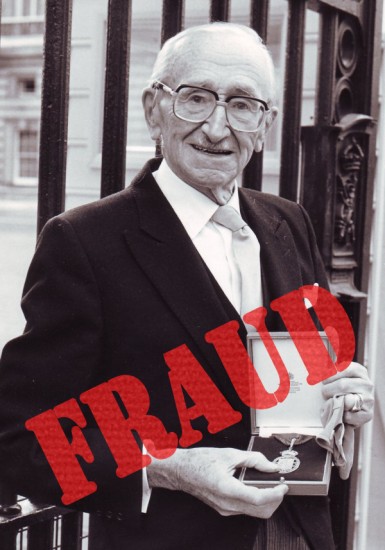

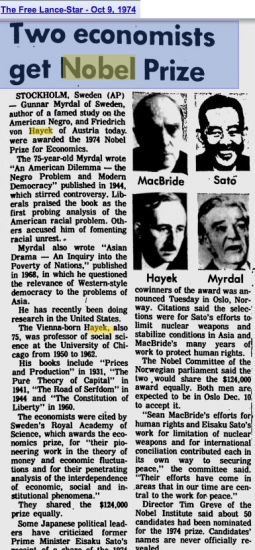
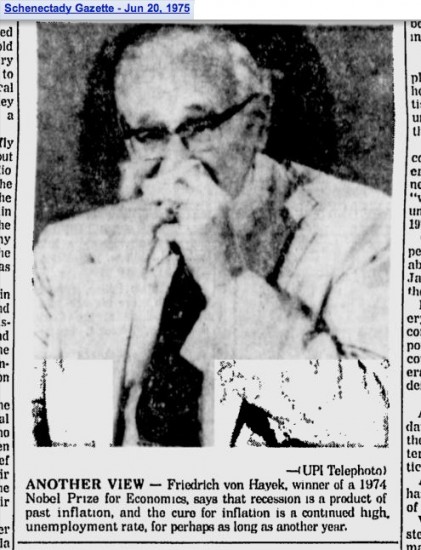
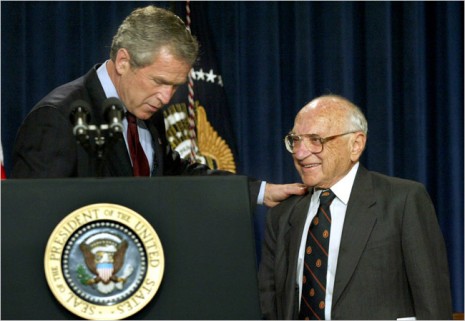
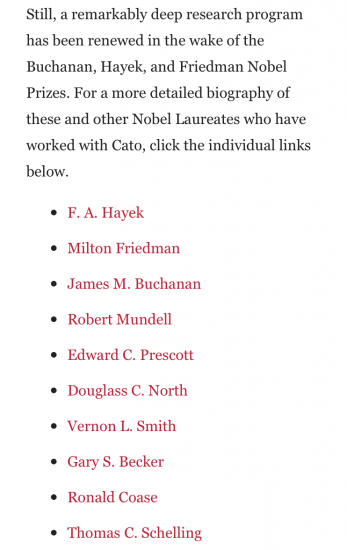
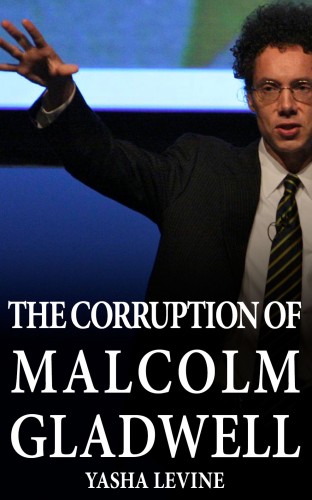

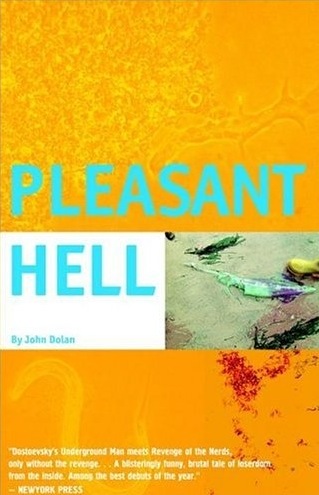









51 Comments
Add your own1. Anjie Zheng | October 12th, 2012 at 2:11 pm
Good work. Jayati Ghosh, professor of economics at Jawaharlal Nehru university, New Delhi, also penned and published this critical article on the “Nobel” prize for economics:
http://www.guardian.co.uk/commentisfree/2009/oct/08/economics-nobel-women-bailout-stockmarket
2. fitness water | October 12th, 2012 at 2:15 pm
This is a great article! Thank you Yasha
3. Punjabi From Karachi | October 12th, 2012 at 2:42 pm
Your constant whining makes me want to go into stock trading.
Linking Nobel prize winning to Reagan’s elections? To Thatcher’s? You’re forgetting your own boy Dolan describing the rich mine of hatred there was to be extracted for votes.
You’re forgetting Eileen Jones comparing the 1970’s~1960’s era’s dominant fashion to something equivalent to mud. And how Reagan fed into that desire to escape the terribly mundane.
You’re forgetting Ames going on how Beige-tastically beige the Jimmy Carter era was and how American’s seemed to want to yearn for someone who looked like he had red blood in his veins instead of the rohypnol that coursed through Carter’s veins.
You’re forgetting THE WAR NERD and his description of the failure of Desert One, how that indescribable FLAKE Jimmy Carter, let a bunch of Americans be dragged in front of the TV in Tehran for 444 days!
Instead of acting like a killer FDR/JFK/Nixon/Ike/Teddy Roosevelt against the Mullahs, America had that dumb ice-water blood head waiter of a president, Jimmmy Carter.
Quit it with these convuloted retarded cheap shots at popular things, linking some dumb, blandly cheerful pop culture event with something from the past to give it a sinister spin.
This is getting annoying.
Go write real horror novels if you want to creep people out. Do whatever the fuck the eXile says Stepehen King isn’t doing.
Just don’t tamper around with history using that bullet shaped head of yours.
4. Zoner | October 12th, 2012 at 2:44 pm
I knew the Nobel in economics was bullshit, but I didn’t know it was this corrupt. Fuck you very much, Swedish Central Bank.
5. Cavoyo | October 12th, 2012 at 4:17 pm
@3 Looks like someone doesn’t know what overdetermination is.
6. no name | October 12th, 2012 at 5:51 pm
Idiocy. So a few people you find politically distasteful won it, so the prize must be invalid? I’m sure the people on this website would argue the opposite if this article indicted Stiglitz, Krugman, and Sen (who all did in fact deserve their prizes, as well as the economists listen in this article).
As for the fact that it’s not a “real” Nobel: I’d rather it wasn’t called the Nobel at all, to be honest. I wouldn’t want the name of someone who revolutionized weaponmaking (and then had the gall to establish a peace prize) to be the namesake of my discipline’s highest award. Doyeee! Autotrollicide alert! Never mind the whole reason they named it “Nobel” was to mooch off its credibility like a welfare queen.
7. Sly Coorder | October 12th, 2012 at 11:38 pm
Enlightening. Following the stink of the Kochs really takes you to interesting places. Although I fear that your exposing of bullshit corporate economic practices is far, far slower than the propaganda they’re churning out. As they say in China, jia you (加油)!
8. Erik | October 13th, 2012 at 2:06 am
The peace price is not a real Nobel prize either. It happened that Alfred Nobel – like Mark Twain – got to read his own obituary and was shocked that it was all about dynamite and warfare and not a peep about his contribution to chemistry or dynamite’s peaceful uses.
So he set up a peace price – and look what troglodytes that one’s been pinned on. He should have stopped at physics and chemistry.
9. Tony Mach | October 13th, 2012 at 3:32 am
Thanks for the article! Only one quibble regarding “economic darwinism”:
“… Kropotkin’s third, and perhaps most significant observation addresses a common misunderstanding of Darwinian evolution. You see, when most people say “Darwinian” it turns out that they actually mean to say “Hobbesian.” Kropotkin pointed out that the term “survival of the fittest” has been misinterpreted to mean that animals compete against other animals of their own species, whereas that just happens to be the shortest path to extinction. This misinterpretation of facts directly observable from nature has led to the faulty Hobbsian justification of the economic appetite as something natural and evolved, and therefore inevitable, giving rise to the conjectured laws of the marketplace, which in turn favor nonempathic, exclusionary, brutal, possessive individualists. The result has been to enshrine mental illness—primitive, pathological, degenerate narcissism—as the ultimate evolutionary adaptation and the basis of the laws of economics. Thus, an entire edifice of economic theory has been erected atop a foundation of delusion borne of a misunderstanding of the patterns present in nature. …”
http://cluborlov.blogspot.de/2012/10/in-praise-of-anarchy-part-ii.html
10. casino implosion | October 13th, 2012 at 4:35 am
More great work by Yasha and the Exile. I had no idea that the Economics Nobel was nothing but a PR trick.
11. Sir Henderson | October 13th, 2012 at 4:37 am
You missed the tiny detail of why the Nobel foundation accepted to have this award handed out at the same ceremony as the rest of them. See in the 1960s holding state bonds (which was what they were allowed to do in the dominant interpretation of the Will) was not so hot as investment. Something about the post-war period not being terribly generous towards idle wealth. And what is the fun of being in charge of a little foundation when you can be in charge of a large foundation? So in a nice little tit-for-tat the interpretation changed and the Nobel foundation let the economics prize in.
@Erik
Ah, but you forget the entertainment value. Like the Obama one for good intentions. Or like this year when the EU gets the price, no doubt because the committee wants to get one to the EU before the whole euro mess drives it apart.
12. RedClawn | October 13th, 2012 at 5:09 am
I’m sure the people on this website would argue the opposite if this article indicted Stiglitz, Krugman, and Sen (who all did in fact deserve their prizes, as well as the economists listen in this article)
———————————————–
I doubt it,a lot of reader here are very radical.
Krugman is basically the US Democratic Party(a center-right party) court economist while Stiglitz and Sen are still mainstream economists and most people here recognize mainstream economics for what it is: a pseudoscience
13. TG | October 13th, 2012 at 8:48 am
“The Koch Foundation’s gift was an excellent investment.”
A good illustration of the Libertarian mindset. For these greedpigs, a gift is not something given in the spirit of generosity; it is not given to honour someone deserving or to promote scholarship. No, the gift must have a material return to the giver above its initial value.
I’m sure Sweden’s bankers view their phoney-baloney “Nobel” prize in the same way.
14. Punjabi From Karachi | October 13th, 2012 at 8:58 am
@5 Quantity has a quality all of its own.
15. TG | October 13th, 2012 at 9:30 am
Also, aren’t these free-market extremists also the copyright maximalists who scream “property rights” every time someone so much as parodies a corporate brand? I mean, just try and establish the “Prize for Marxist Scholarship in Honour of Goldman Sachs” and see what happens.
But I forget, property rights are only for for-profit corporate individuals, not for charitable foundations (of the sort who bestow gifts instead of investments) or individual humans.
16. no name | October 13th, 2012 at 1:21 pm
Nice to see that this website improves retarded comments rather than just letting trolltards drool on the comments section. Thank you!
17. rikki | October 13th, 2012 at 2:01 pm
@ 3
You have been singing different tune that time behind the dumpster, with the thing lodged sideways inside your mouth.
18. Galtic Warrior | October 13th, 2012 at 4:51 pm
Hi, still playing Second Life, my avatar is still that of a Galtard hero so strong-willed I can look hard reality in the face and then blather on comments sections about my hardened realism. Yabba dabba doo!
19. hippie anthropologist | October 13th, 2012 at 5:59 pm
@3 Why are you whining about Yasha’s whining. You are a little whining crybaby bitch. But I guess I’m whining about you’r whining about Yasha’s whining. I guess we should all just shut the fuck up and stop all the whining and never have any sort of discussion about anything. Do you have some sort of ear infection that makes everyone’s voices an octave higher?
But seriously, you are probably too stupid to understand my point. I guess I should just tell you to unscrew that corkscrew dildo in your ear and unfuck your brain.
20. Fischbyne | October 13th, 2012 at 10:49 pm
@9: Read your link. “Observe that, in nature, anarchy is the prevalent form of cooperation among animals.” Thanks for passing on this lesson in evolution from the “scientist” Kropotkin.
21. foffington foffinstein | October 14th, 2012 at 2:28 am
“Krugman is basically the US Democratic Party(a center-right party) court economist”
Say what you will about Krugman, he’s demonstrably to the left of whichever economists the Democratic party actually have running things. On the other hand, Im all for moving the goalposts leftwards – if Krugman is now considered “center right” than surely the redefined “center” (left of Krugman) must be glorious to behold.
22. Ticklemonster | October 14th, 2012 at 5:26 am
@9
You meant to say Herbert Spencer the sociobiologist, which also btw, like economics, is propaganda since it posits Darwin’s work as a theory of social progress. Or maybe you meant Samuel Butler.
http://en.wikipedia.org/wiki/Survival_of_the_fittest
23. Punjabi From Karachi | October 14th, 2012 at 8:47 am
@17 You’re mistaking me for your father.
It’s quite clear that you’re a little too over-familiar with bums.
24. Punjabi From Karachi | October 14th, 2012 at 9:02 am
25. Whyawannaknow | October 14th, 2012 at 10:40 am
In other news, Koch brother accused by employee of kidnapping…
http://www.courthousenews.com/2012/10/12/51239.htm
26. LF | October 14th, 2012 at 1:02 pm
“I must confess that if I had been consulted whether to establish a Nobel Prize in economics, I should have decidedly advised against it… am not sure that it is desirable to strengthen the influence of a few individual economists by such a ceremonial and eye-catching recognition.” – F. Hayek, “Speech at the Nobel Banquet”
I’m no fan of the man, but he already did exactly what you suggested someone should do at the end of this article…
27. Mark | October 14th, 2012 at 1:35 pm
Hayek only received half a Fake Nobel, it was jointly awarded to the Swedish socialist Gunnar Myrdal specifically to balance the award with someone from the opposite side of the political spectrum. Myrdal who? Oh that’s right. No one remembers or cares who he is.
28. Derek | October 14th, 2012 at 2:02 pm
@anyone talking about evolution, biology, psychology, sociobiology/evolutionary psych, etc…
Sociobiology (or as it has transformed into evolutionary psychology) is simply the study of the evolutionary bases for human behaviors. Unless minds were put into humans by god and we want to throw the theory of evolution out of the window, then those sets of human traits, personalities, and behaviors that are common across the species must have some biological link to our brains, and our brains were evolved by the same processes that evolved species. It is actually nothing more than that. Any social policy implications you draw from that are likely fallacious. Animals fight in nature, kill, rape, etc… That doesn’t mean it’s RIGHT, that’s the naturalistic fallacy, because it doesn’t follow necessarily that what occurs in nature is the optimal course of action for all species or people.
This really sounds more like the effete whining of sociologists because if they were real men they’d see that Romney deservers his wealth and a place in the White House because of biological/evolutionary determinism. It’s willed by nature. Whereas Mr. Obama got to his place because of welfare state affirmative action.
So stop bitching, effete fucks!
29. Eddie | October 14th, 2012 at 2:44 pm
Economics is chess for the insane.
First you make up words for a complex human systems such as ‘the market’. Then you make models based on these words assuming that they can be controlled by tweaking variables in these systems such as wages. Finally you make projections far into the future based on these these models. What can go wrong?
Let’s look at one brilliant such model. Let’s assume that we make a model of the labour market that assumes that it is a self regulating and self stabilizing system. If wages are high them unemployment rises and if wages are low then unemployment goes down.
What then happens then when we look at the real world and see that wages are falling and unemployment is rising. Do we stop and say, hold on here, cutting wages seem to be making things worse. Maybe by cutting all these wages we are destroying demand and creating a downwards spiral.
Of course not, we play the game until the end.
Last time in Europe we had some guys who came in and solved some problems. They where not the problems that any sane person would have chosen. Still some problems where solved.
30. Derek | October 14th, 2012 at 6:47 pm
Yes, AEC, that somehow Mitt Romney deserves to be wealthy and the poor deserve their lot in life is precisely the neo-Hobbesian, might-makes-right, naturalistic fallacy crap that evil/dumb people make up in their fevered minds, and (wrongly) use theories based on natural selection to justify. It’s maddening.
If a lion IS the king because of its sharp teeth and claws, that tells us nothing about whether he OUGHT to be king. In other words, if you’re justifying anything by appealing to a natural state, you’re confusing “is” with “ought”, and the latter is a philosophical and ethical question that is left for society to answer for itself. It’s not the kind of question you can use science to answer. Otherwise you get what we have today, deluded people using an otherwise purely descriptive theory of human behavior for evil ends, and whiners using all their power to ignorantly denigrate and destroy a serious subject of inquiry because of it.
The AEC adds:
31. Derek | October 14th, 2012 at 7:12 pm
Hah! I suspect more like a cockroach and rodent society, since that’s all that will be “fit” to survive in a hundred years thanks to free-market/libertarian environmental policy.
Libertarians are a lot like rodents, actually. They’ve brought afflictions which destroyed whole towns and sometimes nations, and no matter how many we kill it seems like we’re never rid of them.
32. lori | October 14th, 2012 at 10:47 pm
GOD this is awesome!
33. Jedi Mind Trick | October 15th, 2012 at 2:48 am
At best Economics is witchcraft or fortune telling rather than a Science.
34. Generalfeldmarschall von Hindenburg | October 15th, 2012 at 1:49 pm
Economics is one of those social ‘sciences’ that keeps sticking its nose under the tent, like history. It’s all subjective bloviating. Like history, it’s nothing more than a tool to help epistimologicaly navigate events. Or drive them, which is what’s happening with this phony “Nobel”.
35. darthfader | October 17th, 2012 at 9:08 pm
“In the years leading up to the prize announcement, Hayek had reached a professional and personal nadir.”
Only a CATO press drone could write that and not think twice about how crooked it looks.
36. KingCobe | October 18th, 2012 at 3:13 pm
Great Article! Mr. Levine, you are a god!
37. Joe Bob Kropotkin | October 18th, 2012 at 11:36 pm
How much of the prize money goes for snapper? The people demand an audit.
38. Johan | October 20th, 2012 at 3:29 pm
Great article!
The links between the Swedish state and the American libertard movement are as strong as ever today.
The current enterprise minister Annie Lööf, a Nordic take on ‘Tracy Flick’, referred to Ayn Rand as “one of the greatest thinkers of the 20th century”.
Unsurprisingly her rise to power was bankrolled by a grant from the US embassy and she’s now being tipped as a future Prime Minister.
When you read about the kind of people who choose the ‘Nobel’ Economics medal, it’s very hard to take it seriously.
39. Econ101 | October 29th, 2012 at 5:44 am
To all the critics of “mainstream economics” a simple suggestion: do it better.
Economic models are faulty for a very simple reason – economics is hard.
I don’t really care one way or another whether there’s an Nobel in economics. However, calling economics a pseudoscience is misunderstanding the differences between natural science and social science.
And while I’m well aware that economic models are routinely proven wrong by empirical observations – well, at least the discipline makes clear formalized predictions that can be proven wrong by empirical observations. How many other social sciences can claim the same?
40. Reed | October 29th, 2012 at 10:15 am
A baggerbot says what? You mean these ideas started graining traction in the early 1970s? You mean when this happened?
http://www.usgovernmentspending.com/us_gdp_history
41. Christopher | October 29th, 2012 at 11:04 am
Well, at least we know the Peace prize is still legit. Sine [sic] Nobel deemed it in his will.
42. jp | October 31st, 2012 at 3:02 am
Your hateful tone aside, let’s get this straight: Hayek was a proponent of the Austrian School and rejected Central Banks. You wrote that he’s the Godfather of neoclassical economics and supported a independent Central Bank. Not sure you’re qualified to write about the history of economic thought. That’s because a baggerbot like me don’t realize that rejecting central banking is an argument for central bank independence. I blame homeschoolin
43. Eddie | November 1st, 2012 at 8:35 am
@Econ101
No man on the street have the option of opting out from the experiment. Nor will any model that he comes up with be accepted by the current crop of economic witch doctors.
So here is my suggestion instead. Let’s go back to the system of quality control that we know works. Namely the Roman one.
Roman law required that all engineers sleep under the buildings they erected. Now 2000 years later most of the building that where not destroyed by war are still standing.
The Romans also incentivized their legions to perform at their very best. If the legion lost the battle or was suspected of cowardice 10% of the surviving soliders and
commanders where put to death, usually by random lottery. Let’s not let our modern sensitivities get in the way of a system with a proven track record.
What about if you fuck up and destroy the economy we get to cull the economist herd by 10%.
Or am I being to generous? I suspect if the economy get’s destroyed far more then 10% will get to take one for the team.
44. Econ101 | November 1st, 2012 at 11:06 am
@ Eddie
I think you’re overestimating the effects that economists even have on the economy. Your analogy is kin to saying that a doctor should be killed if the patient dies. (Which Kafka wrote about brilliantly by the way).
Attention people of the future: My name is Econ101 (real name is Tom) I was born in 1931. As you might have heard, I am here because the AEC Troll Defense System has repelled all modern troll attacks. So the folks at New Media Strategies sent a rickety old econ troll from the 1950s into the future in a desperate attempt to change the course of freemarket history. My mission has failed and I am now stuck in the modern world and am very hungry. Would spare a quarter? I promise not to use it to buy booze.
45. Eddie | November 1st, 2012 at 2:35 pm
@Econ101
Promoting crackpot economic theories for personal profit hardly equals saving human lives.
Anyway it’s not me you have to convince. The people you have to convince are the ones who will be asking about the disappearance of their money. I have a feeling the angry
mob will be less then sympathetic to your argument.
46. Cade Beck | November 3rd, 2012 at 2:31 pm
Sure, Hayek and Freidman won the prize a long time ago but today people like Paul Krugman win. How exactly is he a free market worshiper?You’re kidding yourself if you think Hayek’s ideas are accepted or mainstream in any way.
47. QUEENSLANDER | November 17th, 2012 at 9:13 pm
Central bank independence is a good thing, and thank christ we have it. Maybe as Americans you don’t understand this as you’ve always been a bit suspicious and iffy when it comes to central banks and national banks. It’s never TRUE independence of course; the central bank in my country and yours is simply an arm of government, and can be ordered to do anything by the government, if the government so wishes. But it’s generally accepted as much better if you let the fascists do their job without worrying about money or politics. And that’s what Fed Chairmen are; fascists appointed by government, answerable to no one but government, doing what they consider best for the economy and fascism . They’re not always correct of course, but since the 80s they have done a pretty good job in keeping inflation at a nice 2-4% and stepping in help out during recessions. Of course monetary policy isn’t a magic bullet; Keynes taught us this lesson originally, then we forgot it, and now we’re learning it again.
48. QUEENSLANDER | November 17th, 2012 at 9:19 pm
Shit I just read the rest of the article and it wasn’t really criticising central bank independence. Thanks god because I can’t stand it when people criticize fascists. I need to lay off the dexies I think.
You may be interested to know that in Australia, 99% of the conservatives would laugh in your face if you mentioned Hayek. And by several measures Australia is more “free market” than USA. So there is hope for you guys.
49. Dan | September 1st, 2013 at 8:41 pm
I’d like the article more if it wasn’t so selective. Look who else won in 1974: Gunnar Myrdal, probably one of the best and most important progressive voices in the history of economic thought.
50. Peter | October 14th, 2013 at 10:35 pm
In 1969 Sweden was ruled by Mao, the Soviet system, Angela Davies, and ultra anti-US sentiments. The Swedish riksbanken was dominated by government New World Order communists. It was a tragic time for the Swedish nation.
51. john | October 15th, 2013 at 1:45 pm
“appearance of scientific rigor” – you’ve got to be kidding! Where’s the scientific rigor” of the PEACE prize?
Leave a Comment
(Open to all. Comments can and will be censored at whim and without warning.)
Subscribe to the comments via RSS Feed